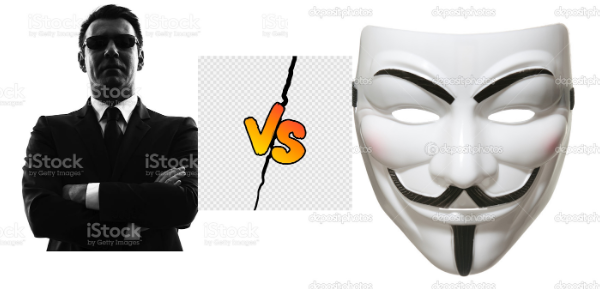Privacy vs. Security
On December 6, 2019, a naval air station in Pensacola, Florida was attacked by an aviation student from Saudi Arabia. The assailant, a second lieutenant in the Royal Saudi Air Force, was part of a training program supported by the Pentagon and in cooperation with Saudi Arabia. Just before the attack, an incriminating message seemingly related to the attack was sent from an unknown user on Twitter, highly suspected to be the attacker. Less than 30 minutes later, the shooter and three others were dead, leaving eight more injured. In the wake of the attack, the Federal Bureau of Investigation (FBI) began investigating the perpetrator, specifically his social media. In order to figure out his motive, they reached out to Apple, the producer of the assailant’s phone, to unlock it. However, Apple refused, saying that they did not want to set a precedent of little to no privacy against the government. This, therefore, begs the question: Does civilian privacy outweigh public security or vice versa, and to what extent?
First off, does Apple even care about privacy? It is important to understand what benefits Apple is gaining from defending privacy—simply put, it is great marketing. By defending an individual against the big bad government, much like rooting for an underdog, a lot of people gain trust in Apple and their products. This acts almost like an assurance for Apple consumers—their privacy will be protected at all costs. Granted, they are defending a terrorist, and it is not the first time they have done so. In a 2015 terror attack in San Bernardino, California, Apple was once more asked by the FBI to unlock the attacker’s iPhone 5c—they refused. In a Time magazine interview, CEO of Apple Tim Cook stated, “it’s privacy and security or privacy and safety versus security,”essentially making the case that privacy and safety are one in the same (Times Magazine). Less than a year later, when asked about the ongoing conflict with the FBI over privacy, Cook doubled down, explaining that Apple believed they had a massive responsibility to protect customer’s data and privacy. He continued defending his stance, saying that if they gave the FBI a backdoor into their data, it would likely lead to hackers additionally using the same data.
Not 30 years ago, US naval technology, The Onion Router (Tor), was released to the public, making an extremely private, anonymous, military-funded, encrypted network available to the worldwide public (Fagoyinbo 262). This, naturally, was extensively exploited by hackers, drug traffickers, money launderers, and for all kinds of fraud and theft, so-called a backdoor. For this reason, and similar ones, Apple is very apprehensive about giving the government this kind of technology.
On the contrary, the government’s safety for the public is another factor to assess. Since the dawn of civilization, paying for protection, at its simplest, has always been an imperative part of establishing a functioning society. The US is no different, with tax payers relying on the government to protect both their data and physical security, the latter in the form of police. The former, however, is far more complicated and widely debated. From silencing and monitoring Vietnam war criticizers as well as unlawful worldwide spying all the way up to the early 2010s, the National Security Agency (NSA), the most prominent government intelligence agency in the US, has gone through its fair share of controversies. Its exploits, however, are to be understated—the NSA is imperative in identifying attacks before they happen and largely protecting most civilian data.
The FBI is no different, essentially heading counter-terrorism and US intelligence. Their efforts all the way back to WWII and 9/11 have been essential to public safety and the reason why we do not notice their protection proves their proficiency in the field. If the FBI or NSA were to have the software to “extract data like contacts, photos, and calls from locked iPhones,” they would undoubtedly be able to prevents terrorist attacks, like the ones in Pesnacola and San Bernardino (McLaughlin). This is largely undebatable, yet the ramifications of such a software being available to the government, and perhaps the public, are not.
Overall, it can be reasonably concluded that, to a small extent, civilian privacy outweighs public safety. Although the benefits of a software helping counter-terrorism could be great, the possible drawbacks are much greater, and it is therefore better to prevent such a program from being widely available. With hackers using government-made technology as a backdoor into calls, photos, and messages would be, unquestionably, catastrophic for data privacy worldwide, Even if it were possible to prevent hackers from exploiting the software, this problem would still be widely contested as most consumers likely do not want their data to be exposed to the government. Therefore the privacy of an individual supersedes the safety of the many, as it is the desire of the many to maintain the privacy.

Hi, my name is Ewan and I am a part of the class of 2023. I play way too many games.
